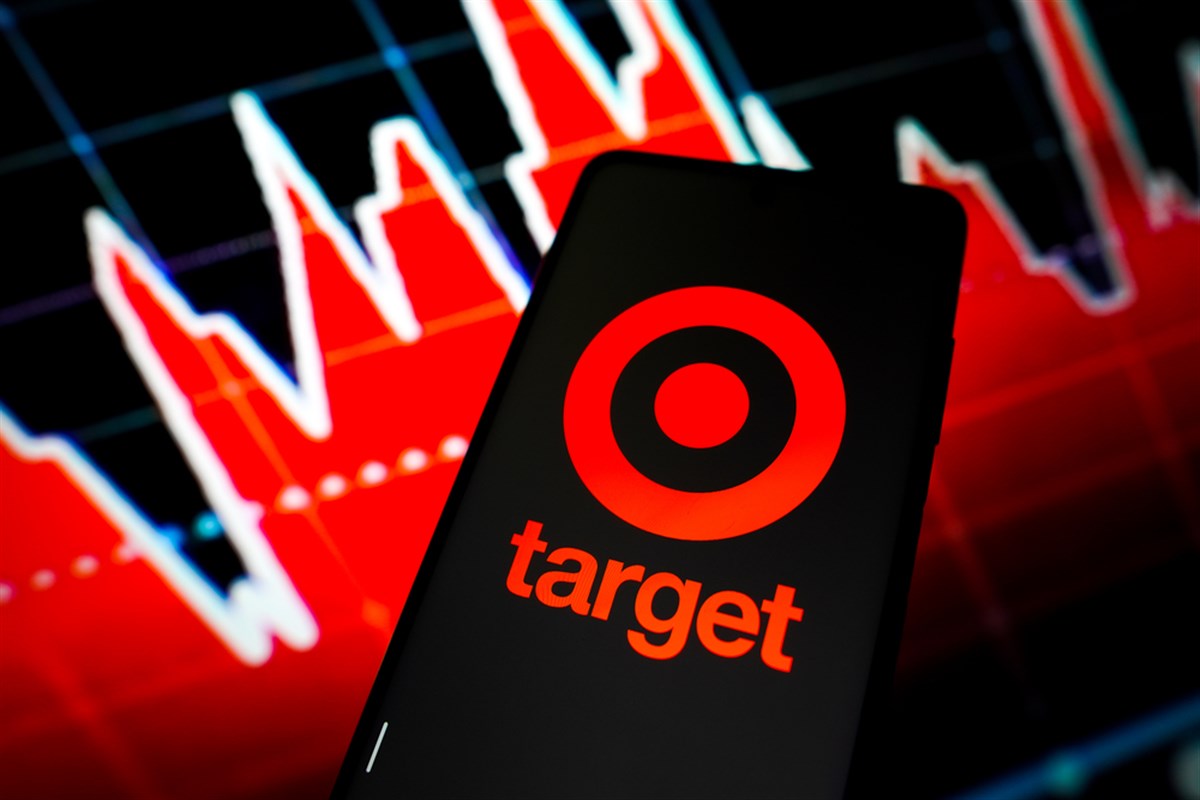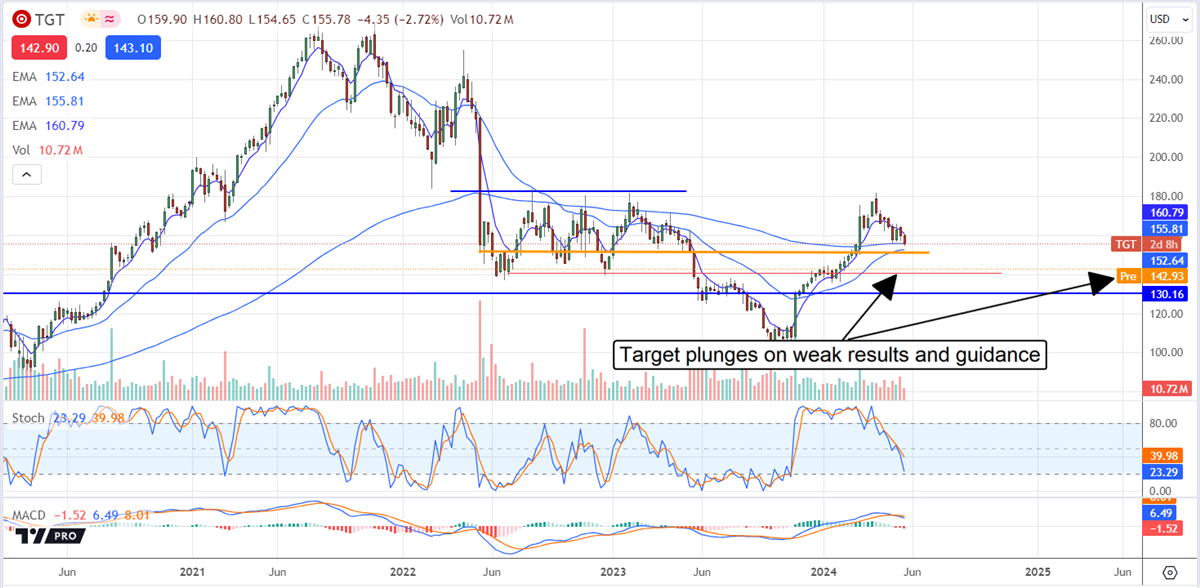
Target’s (NYSE: TGT) Q1 results highlight the growing bifurcation in retail. Its results include contracting revenue driven by weakened discretionary spending and loss of market share. That is not good news because Target is the discretionary choice compared to its largest competitor, Walmart (NYSE: WMT). The takeaway is that Target is on the cusp of a pivot back to growth that will be weaker than forecast and has the market resetting the outlook.
Because Target is still a solid retail name with a healthy balance sheet, cash flow, and capital return, the stock is worth buying, but there may be a better time to do it. In this environment, there is a risk the market could return to the low end of its trading range, where it would present a deeper value and provide a higher yield.
Target Falls on Weak Results, Optimistic Guidance
Target struggled in Q1 with revenue of $24.53 billion, contracting by 3.1% compared to Walmart’s 6% gain. The revenue is as expected but provides no bullish catalyst, and the internals are iffy. Systemwide, comps are down 3.7% on a 4.8% decline in store comp, offset by a 1.4% increase in digital. Digital sales are the only real strength in the report, rising 1.4% net on a 9% increase in same-day and 13% in drive-up services. CEO comments highlight a decline in discretionary sales offset by an increase in beauty, which is unsurprising. That trend has been in place for more than a year.
The margin news is good but tainted by a decreased inventory and a YOY decline in earnings. The gross margin improved by 140 basis points but was offset by increased SG&A to leave the operating income margin up 100 bps. The result is an EPS of $2.03, down 1% compared to last year, and the consensus was missed by 2%.
Guidance is a sore spot for the market. The company is guiding for 0% to 2% comp store growth this year and to pivot back to growth in the current quarter, but the current quarter guidance is weak relative to consensus, and the full year is optimistic given the Q1 results and Q2 guide. Because the company struggles in today’s critical categories, including grocery and everyday items, it will likely continue to underperform this year.
Target’s Dividend is Safe and Reliable
Target’s performance is weak, but the cash flow is sufficient to pay the dividend and improve the balance sheet. Balance sheet highlights include a 3X increase in cash, flat assets, decreased debt, and flat liabilities that have equity up 19%. The company did not repurchase any shares during the quarter but could have, and there is still $9.7 billion available under the board's authorization. Leverage is low at less than 1X equity, including a 20% increase in equity compared to last year.
Trading at 16X this year’s earnings guidance, the stock is a value compared to Walmart, and the dividend is substantial, more than double the yield, with an outlook for distribution growth. The pace of distribution growth may slow this year and next, but increases are expected to outpace inflation.
Target Stock Price Falls Through Support, Lower Prices in Sight
Target’s stock price fell more than 7% in pre-market trading to crash through critical support. The move has the market near $140 and the next critical support target, which may be reached soon after the opening. If the market moves below $140, a fall to $130 is likely. The $130 level is a high-probability target for solid support and will likely produce a bounce, if not a rebound. Because Target is expected to return to growth soon, lower lows are not expected, but range-bound trading is.














